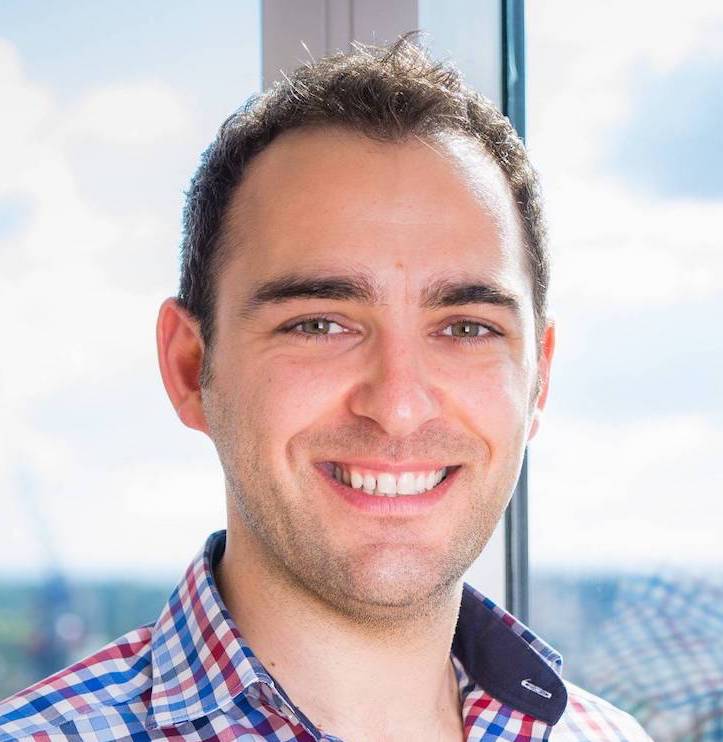Humans (and living things in general) have the amazing ability to adapt to almost anything. It helps us evolve and survive in harsh environments.
To put it plainly, we get used to things. You learn how to dress for the weather after a day or two in a different country. You easily complete that 10k run that you used to dread even putting your shoes on for. You confidently get up on stage and deliver a presentation that used to terrify you. For the most part, something gets easier the more used to it you get.
But this can greatly work against us as well, especially when it comes to happiness. To prove it, have a look around you, at the things you possess. Remember the time when you were hoping to have them one day, imagining what it would feel like when you bought them. Now think of when you did buy them. It probably made you happy for a few days, weeks, months depending on what kind of investment it involved – but then you got used to it, and it’s not special anymore.
I caught myself sighing a few weeks ago when my local Tesco’s Apple Pay (contactless payment through iPhones) didn’t work, and I instead had to put my card in and insert my pin. How quickly have I gotten used to this technological miracle, that paying by good ol’ chip and pin has gotten inconvenient to me? I had to slap myself as soon as it hit me a few seconds later.
When was the last time you appreciated what you have (or what you have access to)? Even the basics.
The fact that you can read this article is a sign that you are one of the most fortunate people in the world. You can read, you likely have an abundance of water, you’re so spoiled for choice on what you can have for breakfast, lunch or dinner that you can even have it delivered to your doorstep in few minutes! Logically you know there are millions of people with much less, and yet you likely have days wherein you’re upset, frustrated, grumpy or dissatisfied about your life or situation.
In the movie Happy directed by Roko Belic, a poor rickshaw driver living in the slums of India says “I feel that I am not poor, but that I am the richest person in the world.” When they ask him what makes him happy, despite being in such dire poverty, he pointed to his family, saying “When I return home and see my son waiting for me, and when he calls out to me, ‘Baba!’, I am full of joy.” It definitely puts my Apple Pay “fiasco” into perspective
According to the leading researcher of happiness (yes that’s a thing!), Ed Diener, a person’s values are a great predictor of his/her happiness. People who value compassion, collaboration, and a dream or goal to improve the environment or the world, are far happier than people who value looks, money, power and popularity. We all somehow know this, and I wouldn’t be surprised if many have brushed this off as “cliche”, but it’s far from “cliche”, it’s crucial for us to understand. The extent of our happiness is far reaching when we have great relationships, and we celebrate and value their happiness and success as well.
Money is often seen as the end-all and be-all of goals and success, and so of happiness, and yet in Happy, they found that there is an increase in happiness only from those making $5,000 to those making $50,000. But in an income increase from $50,000 up to $500,000, there’s no bearing on happiness levels. What does this mean? Happiness increases only as someone makes enough money to cover basic needs. Beyond around $50,000, happiness levels no longer increase as the income does. It’s fascinating, and something more people should be aware of.
Happiness is the art of appreciation.
Here are a few tips that I guarantee you will make you feel happier (in the end).
1. What makes you happy?
Do you even know what makes you happy?
Think about it. It almost seems like a silly question but I’ve been asking people recently, and the most common answer is “Ummmm… Hmmmm.” If you don’t know what makes you happy, then it’s pretty hard to make yourself even happier. So take some time and think about it: What makes you happy?
When you figure it out, try doing more of that.
2. Practice your gratitude
Pick ten things in your life that you take for granted (like hot water, electricity, appliances, your house or flat, etc.) and think for a moment what a couple of weeks would be like without it. Don’t soften the blow; really think of the consequences, imagine and internalise them. I imagine a couple of weeks without these ten things would at least be pretty inconvenient, perhaps even sad or downright stressful.
Realize that you have these things in your life on a daily basis, as and when you need it. How could you not be grateful for that?
3. Declutter your happiness
Some time ago I read a brilliant book: The Life-Changing Magic of Tidying Up by Marie Kondo. And apart from oddly satisfying ways of folding and organising clothes, the main focus is on decluttering: getting rid of everything that is not adding to your happiness of quality of your life. After reading the book, I looked in my wardrobe, drawers and shelves and realised that I haven’t used a good 60% of the clothes and stuff in maybe a year or more. I threw away or donated at least four big bags of stuff and clothes. As a result, I felt so much better at my place, as if there was more air to breath (technically, there was).
So be brave and get rid of all the things that are not adding to your happiness. Take each item in your hand ask yourself, “Does this make me happy or add significantly to the quality of my life?” If the answer is not clearly YES then let it go. In the process, you will be pleasantly surprised by a newly found appreciation for quite a few things. Plus, the space you give yourself by clearing up is enough to make you feel lighter!
4. Slow down
Stress and happiness are mutually exclusive. When you rush, you stress. Many people use rushing as an artificial way to create excitement and get the adrenaline flowing. If you feel like you are constantly late, or you often catch yourself rushing for no reason, you are one of those people, and it’s your drug that gives you a high – but you’re paying a high price. You pay with happiness.
You’ve probably heard the overused phrase of “being present”. What does that even mean? It means experiencing the NOW (I highly recommend a great book The Power of Now by Eckhart Tolle), just enjoying the moment. And if you don’t know what I’m talking about, then you have some work to do. Take a moment a few times a day and, with a childlike curiosity, just observe how it feels to: hold a pen in between your fingers, study the weight, balance, texture, coldness. Or to dry your body after taking a shower. Observe and be aware of the variety of flavours of your lunch and how they mix. Most of us devour our lunch like starving dogs, hardly even chewing it. Sit down, take a moment and focus on how it feels to be in your body. (It may seem little woo-woo but isn’t being you the only thing you’ll ever experience fully?)
Whether or not you try some of these exercises when you finish this article is up to you, but I’ll leave you with this:
Happiness is something we cultivate, not something that happens to us.
And what’s a more important aim in life than living a happy one?


